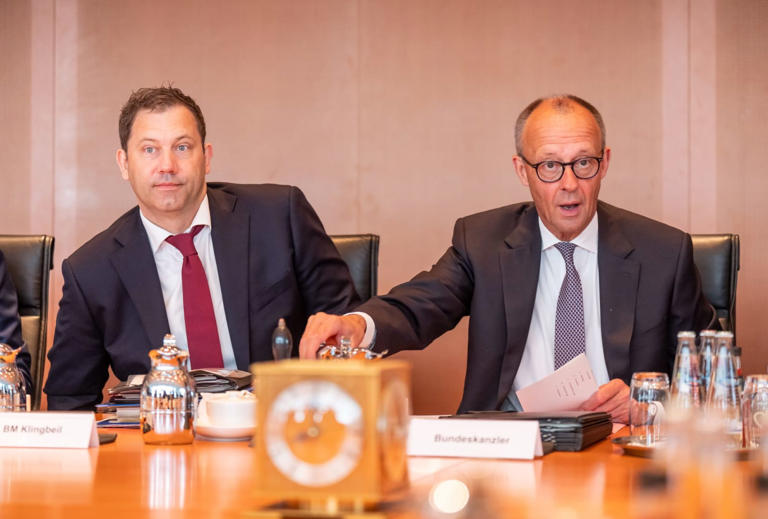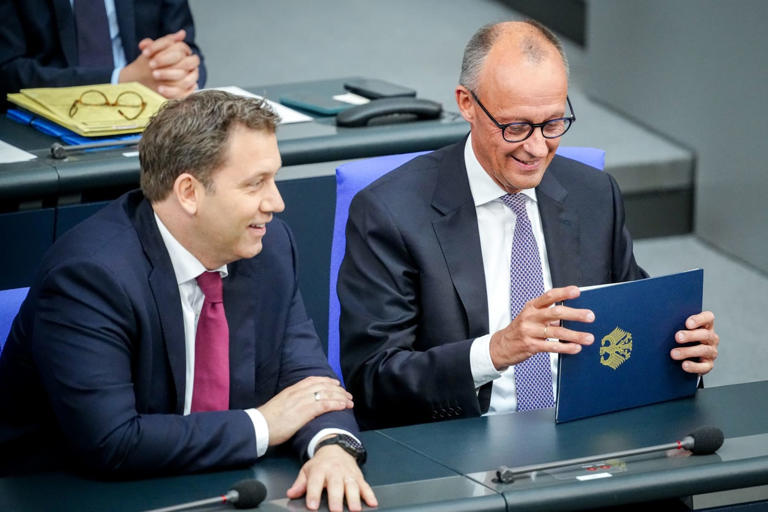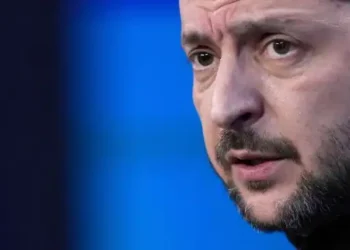Germany’s Finance Minister, Lars Klingbeil has promised to lift the country’s defense spending to 3.5% of gross domestic product in 2029.
This came as he presented the new government’s spending plans.
Klingbeil said that Germany’s defense spending will hit 2.4% of GDP this year, and “we will raise defense spending step by step so that we will reach a NATO quota of 3.5% in 2029.”
Klingbeil’s budget proposal, which was passed by the Cabinet earlier today, sees the ordinary defence budget rise by around €10 billion ($11.6 billion) to €62.43 billion in 2025.

The figure is set to rise to €82.69 billion in 2026 and to €152.83 billion in 2029.
The 2025 budget also includes €24 billion in extraordinary military expenditure, financed out of a special fund passed in the wake of Russia’s invasion of Ukraine.
Germany is thus committed to spending 2.4% of gross domestic product (GDP) on defence this year, above the current NATO target of 2%.
NATO countries are expect to agree on a new 5% target this week in The Hague, including 3.5% on military expenditure and 1.5% on defence-related infrastructure.
Germany has committed to reaching the 3.5% target by 2029.
Chancellor Friedrich Merz’s coalition pushed plans through parliament to enable higher defense spending by loosening strict rules on incurring debt even before it took office last month.
It acted ahead of the NATO summit starting Tuesday that aims to raise allies’ defense spending target from 2% of GDP to 3.5%, plus another 1.5% for potentially defense-related infrastructure.
According to the defence ministry, Germany’s 2025 budget provides enough funding for 10,000 additional military positions and around 1,000 civilian posts.
Defence Minister, Boris Pistorius said in a statement, “The draft budget and the decision on key figures show that external security is once again a priority.”

“After decades of neglecting the Bundeswehr, dangerous security gaps have emerged that we must continue to close.”
Boris Pistorius
The Bundeswehr – the German military – has committed to raising its number of troops by 60,000 in the coming years, in line with new NATO capability targets.
Klingbeil Defends Fiscal Expansion

German Finance Minister, Lars Klingbeil defended his country’s fiscal expansion and expressed confidence that the massive spending increases will not contravene EU deficit rules.
Klingbeil said while presenting the government’s draft budget for 2025, “The signals that we have received from the European level are very clear that everything is in line.”
He added that there will still be “intensive talks” with the European Commission when Germany presents its medium-term fiscal plan. “I’m confident about that,” he said of negotiations, adding, “We can find a common path.”
Klingbeil, who is also the Vice Chancellor, said that he will “be very vigilant that the money is spent efficiently,” for example by aiming for greater cooperation at European level on procurement, research and development.
The scale of Germany’s ambitions to radically expand defense and infrastructure spending have raised thorny questions about how such spending can be reconciled with EU fiscal rules that Germany — previously a fiscal hawk — had long pushed for.
Since March, however, Germany has led a concerted pushed for a loosening of those rules to allow for vastly greater defense spending.
Klingbeil argued that the EU’s largest economy, with its relatively low debt load, has the financial leeway to greatly increase spending after many years of fiscal restraint.
“We have a debt-to-GDP ratio of 63 percent in Germany, which is well below other countries such as France or the USA, some of which are at over 100 percent.
“And I am firmly convinced of this: Now is the right time to invest in our country’s ability to defend itself, and to invest significantly.”
Lars Klingbeil
Klingbeil’s 2025 budget must still be approved in parliament before it can take effect.
READ ALSO: Energy Minister Charges New VRA Board to Drive Power Sector Reforms



















